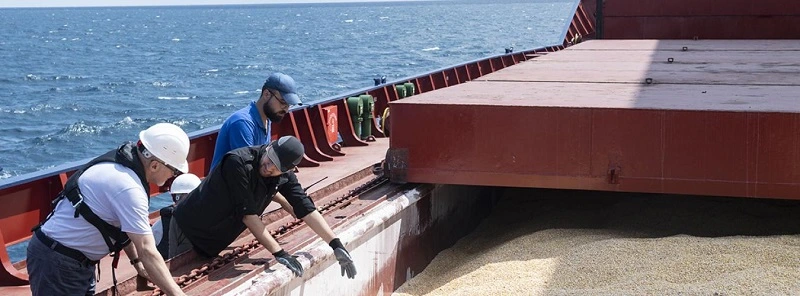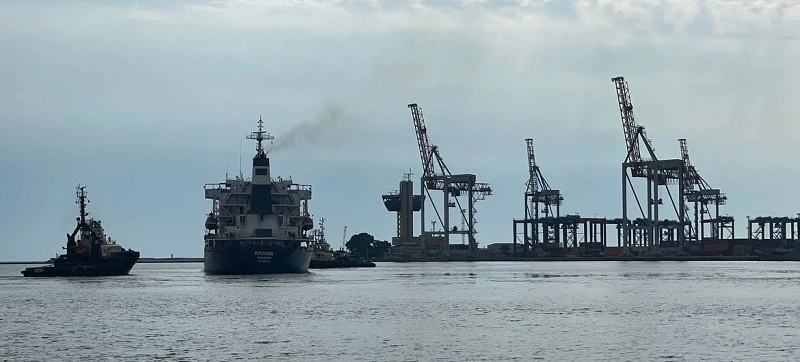Russia has demanded unblocking and urgent delivery of about 300 thousand tonnes of its fertilizers meant for developing countries which is currently stuck in European Union ports.
Moscow’s ultimatum came as the United Nations-backed Black Sea Grain Initiative it signed in July along with Ukraine and Turkey to give global access to Ukrainian food products and Russian food and fertilizer expires on Friday.
The text of the document provides for its automatic extension for another 120 days in the absence of objections from any of the parties.
While Russia said that it has allowed the technical extension of the Initiative from Saturday “without any changes in terms and scope”, it “clearly and frankly” emphasised the interconnected “package” nature of the agreements on Ukrainian food and the effective implementation of the Russian-UN Memorandum on the normalization of domestic agricultural exports.
“We took note of the intensification of the work of the UN Secretariat to fulfill its obligations in this regard and the information provided to us on the intermediate results of its work to remove obstacles to the supply of Russian fertilizers and food. All these issues must be resolved within 120 days, for which the ‘package deal’ is extended,” said a statement issued by the Russian Foreign Ministry.

The Vladimir Putin government mentioned that it is after their repeated reminders that efforts have begun to unblock thousands of tonnes of Russian fertilizers detained in EU ports, which Russia donates to developing countries in need.
Even as the hostilities continue to increase in Ukraine, the maritime humanitarian corridor formed under the Black Sea Grain Initiative saw the resumption of supplies from the region considered the breadbasket of the world.
The Joint Coordination Centre (JCC) established in Istanbul for the safe transportation of merchant ships has stated that there are currently 69 vessels waiting to move – following inspection – into the three Ukrainian Black Sea ports of Odessa, Chernomorsk, and Yuzhny.
They have the capacity to export approximately 1.5 million tonnes of grain and other food products while 24 more loaded vessels are waiting for inspection in Turkish territorial waters.
“I was deeply moved to know that […] Türkiye
, Ukraine
, Russia
, and the UN
had come to an agreement for the rollover of the Black Sea Grain Initiative, allowing for the free exports of the Ukrainian grains.” – @antonioguterres pic.twitter.com/Sdw7gwm41S
— UN Geneva (@UNGeneva) November 17, 2022
As per the procedures agreed upon, all participants coordinate with their respective military and other relevant authorities to ensure the safe passage of commercial vessels under the Black Sea Grain Initiative.
Last month, Moscow suspended the implementation of the agreement on the export of agricultural products from Ukrainian ports after the attack on its Black Sea Fleet at the naval base in Sevastopol on October 29.
Russia claimed that the Ukrainian armed forces, “under the cover of the humanitarian grain corridor”, launched massive air and sea strikes against its ships and infrastructure.
However, in a dramatic move that also averted a major global food crisis, Moscow resumed its participation on November 2 after receiving “written guarantees” from Ukraine on the non-use of the humanitarian corridor for military operations.
“It should also be absolutely clear that any attempt to use the humanitarian corridor in the Black Sea for provocative military purposes will be resolutely suppressed,” said the Russian Foreign Ministry as it agreed on the 120-day extension of the Initiative on Thursday.
Also Read: Moscow conference urges Taliban to rein in terror groups in Afghanistan




















